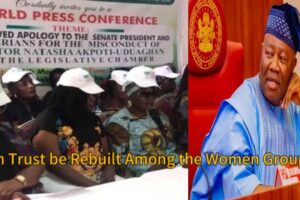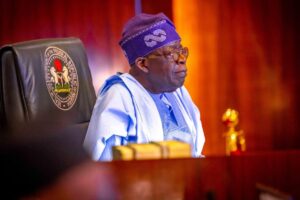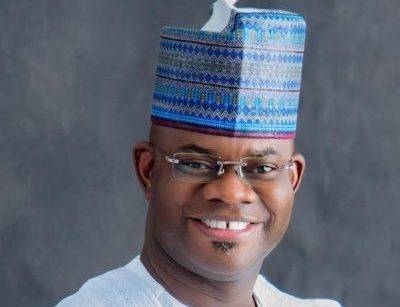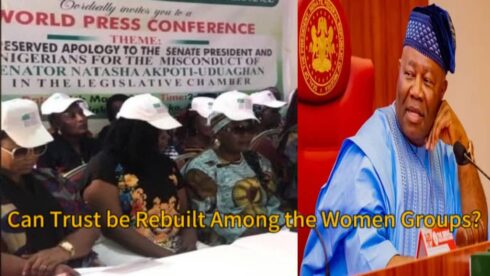Former Kogi State Governor Yahaya Bello reportedly avoided arrest by the Economic and Financial Crimes Commission (EFCC) in Abuja on Wednesday. Yahaya Bello is under investigation for his alleged involvement in an N80.2 billion fraud case. According to sources, his successor, Governor Usman Ododo, played a key role in obstructing the arrest.
The EFCC had stationed officials around the Kogi State Government Lodge in the capital city, hoping to apprehend Yahaya Bello. However, despite their efforts, Governor Ododo’s intervention allowed his predecessor to escape. A reliable insider revealed that Ododo leveraged his gubernatorial immunity to hinder EFCC officials from carrying out the arrest.
Governor Usman Ododo Accused of Shielding Yahaya Bello from EFCC
Governor Usman Ododo has come under fire for allegedly aiding Yahaya Bello in evading justice. Reports suggest that Ododo used his executive powers to prevent the EFCC from apprehending the former governor. The case, which revolves around a massive N80.2 billion fraud, has drawn widespread attention, with many calling for greater accountability.
According to sources, Ododo’s influence prevented the EFCC from executing their duties effectively. The agency’s operatives reportedly hesitated to confront the sitting governor due to the constitutional immunity he enjoys, giving Bello the opportunity to evade capture.
EFCC Intensifies Investigation Into N80.2 Billion Fraud Case
The EFCC has intensified its investigation into the alleged N80.2 billion fraud involving Yahaya Bello. Despite their recent setback, the commission remains determined to hold the former Kogi governor accountable. Sources indicate that the fraud case is linked to misappropriated funds during Bello’s administration, raising serious concerns about financial misconduct in Kogi State.
The anti-corruption agency is expected to seek alternative legal means to pursue the case. The immunity currently protecting Governor Ododo complicates matters, but the EFCC is exploring all available options to ensure justice is served in this high-profile case.
Legal Experts Weigh In on Governor’s Immunity and EFCC’s Options
The role of gubernatorial immunity in shielding Governor Ododo from legal repercussions has sparked debates among legal experts. While the immunity clause protects sitting governors from arrest, it raises questions about accountability, especially in cases involving corruption or aiding fugitives.
Legal analysts have suggested that the EFCC could focus on building a solid case against Yahaya Bello, preparing for legal action once Ododo’s tenure ends. The ongoing investigation may serve as a test case for future interactions between anti-corruption agencies and state governors who use their immunity to obstruct justice.
Public Reactions to Alleged Corruption and EFCC’s Inability to Arrest Yahaya Bello
The public has responded with mixed emotions to the news of Yahaya Bello’s evasion of arrest. Many Nigerians have expressed frustration with the EFCC’s inability to apprehend high-profile figures, particularly those with political ties. The alleged N80.2 billion fraud has only added to concerns over corruption in Nigeria’s public sector.
Social media platforms have been flooded with reactions, with some citizens demanding immediate reforms to the immunity clause that allows governors to impede investigations. Others have urged the EFCC to strengthen its strategies to avoid being outmaneuvered by political figures in the future.
Calls for Reform in Nigeria’s Immunity Laws Grow Amid High-Profile Cases
The controversy surrounding Yahaya Bello and Governor Usman Ododo has reignited calls for a review of Nigeria’s immunity laws. Critics argue that the laws enable sitting governors to abuse their positions and prevent law enforcement agencies from holding them accountable. The case has intensified demands for reform, with many advocating for a more balanced approach to immunity.
Several civil society groups have also joined the conversation, emphasizing that immunity should not be a tool for protecting corrupt officials. They have called on lawmakers to reconsider the scope of immunity laws to ensure that public officials are held responsible for their actions while in office.
Table of Contents
Discover more from OGM News NG
Subscribe to get the latest posts sent to your email.














